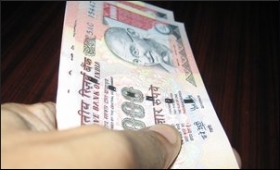|

|
New service tax regime to boost cross-border transactions
|
|

|
|
| Top Stories |
 |
|
|
|
SME Times News Bureau | 20 Nov, 2012
The new service tax regime will have a significant positive impact on cross-border transactions, global audit and consulting firm BDO has said.
Under the tax regime that came into effect in India from July 1, 2012, all services, except 17 activities listed in what is known as the "negative list", are taxed. The "negative list" covers services provided by the government, the Reserve Bank of India, foreign diplomatic missions and those related to essential commodities or the service sector like agriculture, education, healthcare, sports and entertainment.
Besides impacting cross-border transactions, it will affect domestic industry as tax rate for all services except for the 17 in the negative list and those specifically exempted by a mega exemption notification will go up to 12.36 percent from the previous rate of 10.3 percent, Yash Arya, director at BDO India's tax advisory service, said in a report.
"However, it is fundamental that the government considers views of all stakeholders and develops a model law that is easy to implement, does not lead to double taxation and is not mired in a dilemma of interpretational concerns," Arya said.
As India moves towards a single goods and services tax (GST) regime, the taxation of all services based on a negative list is clearly a positive development, he said.
Rules based on the principle of service tax being a consumption-based tax specify the place of receipt of services as the default place of supply - with different treatment for specified categories of services where the default rule is not applicable.
In addition, for the purpose of determining the place of supply, services have also been categorised by reference to the place of an event, place of immovable property, location of performance, location of the service provider and transportation-based services.
With the introduction of the new norms, rules for determining export and import of services under the earlier service tax regime will cease to apply.
Previously, service tax was levied on 119 specified categories of taxable services. In other words, service tax was levied on a positive list of services.
Under the new regime, the word "service" has been defined for the first time as an activity undertaken for consideration and certain transaction or activities are included as deemed services in the list of declared services.
Service tax is now levied on all transactions qualifying as a service which are provided or agreed to be provided by one person to another in the taxable territory, except for 17 activities. The paradigm shift has come 18 years after the introduction of service tax in 1994.
|
|
|
| |
|
|
|
|
|
|
|
|
|
|
|
|
|
|
| |
| Customs Exchange Rates |
| Currency |
Import |
Export |
US Dollar
|
66.20
|
64.50 |
UK Pound
|
87.50
|
84.65 |
Euro
|
78.25
|
75.65 |
| Japanese
Yen |
58.85 |
56.85 |
| As on 13 Aug, 2022 |
|
|
| Daily Poll |
 |
 |
| PM Modi's recent US visit to redefine India-US bilateral relations |
|
|
|
|
|
| Commented Stories |
 |
|
|
|
|
|
| |
|